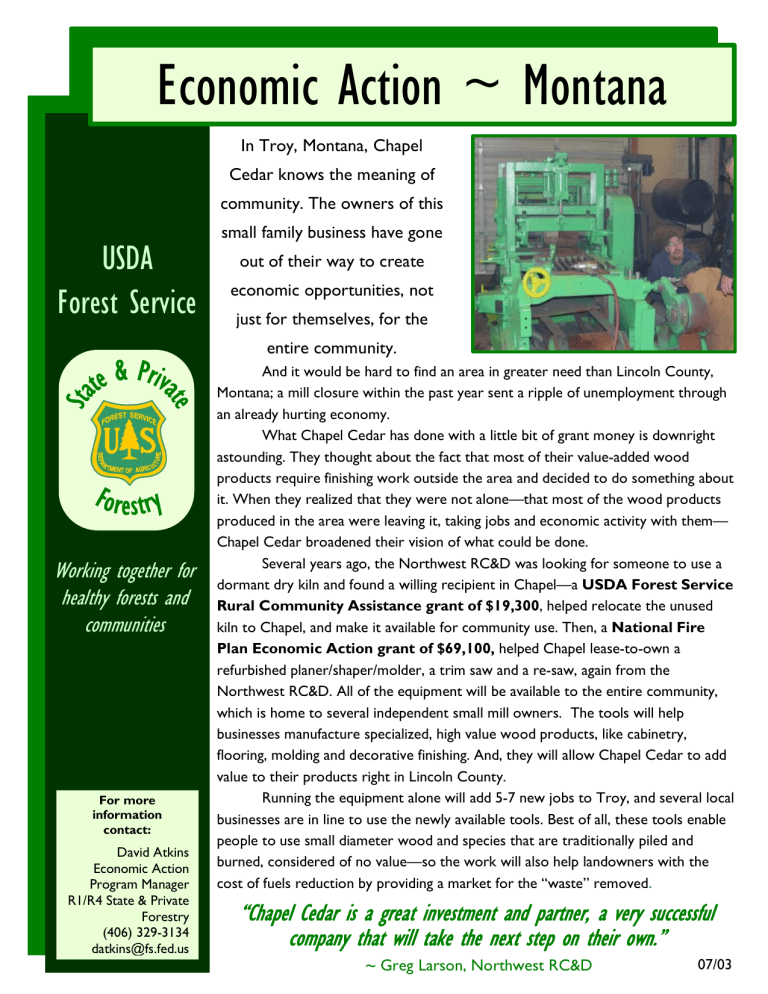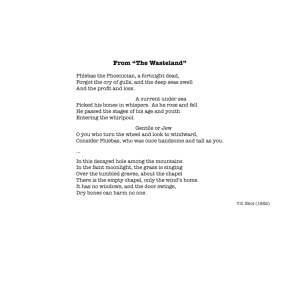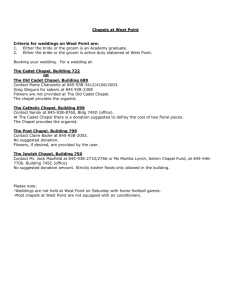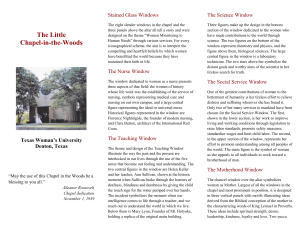Economic Action ~ Montana

Economic Action ~ Montana
In Troy, Montana, Chapel
Cedar knows the meaning of community. The owners of this small family business have gone
USDA
Forest Service
Working together for healthy forests and communities
For more information contact:
David Atkins
Economic Action
Program Manager
R1/R4 State & Private
Forestry
(406) 329-3134 datkins@fs.fed.us out of their way to create economic opportunities, not just for themselves, for the entire community.
And it would be hard to find an area in greater need than Lincoln County,
Montana; a mill closure within the past year sent a ripple of unemployment through an already hurting economy.
What Chapel Cedar has done with a little bit of grant money is downright astounding. They thought about the fact that most of their value-added wood products require finishing work outside the area and decided to do something about it. When they realized that they were not alone—that most of the wood products produced in the area were leaving it, taking jobs and economic activity with them—
Chapel Cedar broadened their vision of what could be done.
Several years ago, the Northwest RC&D was looking for someone to use a dormant dry kiln and found a willing recipient in Chapel—a USDA Forest Service
Rural Community Assistance grant of $19,300 , helped relocate the unused kiln to Chapel, and make it available for community use. Then, a National Fire
Plan Economic Action grant of $69,100, helped Chapel lease-to-own a refurbished planer/shaper/molder, a trim saw and a re-saw, again from the
Northwest RC&D. All of the equipment will be available to the entire community, which is home to several independent small mill owners. The tools will help businesses manufacture specialized, high value wood products, like cabinetry, flooring, molding and decorative finishing. And, they will allow Chapel Cedar to add value to their products right in Lincoln County.
Running the equipment alone will add 5-7 new jobs to Troy, and several local businesses are in line to use the newly available tools. Best of all, these tools enable people to use small diameter wood and species that are traditionally piled and burned, considered of no value—so the work will also help landowners with the cost of fuels reduction by providing a market for the “waste” removed .
“Chapel Cedar is a great investment and partner, a very successful company that will take the next step on their own.”
~ Greg Larson, Northwest RC&D 07/03





